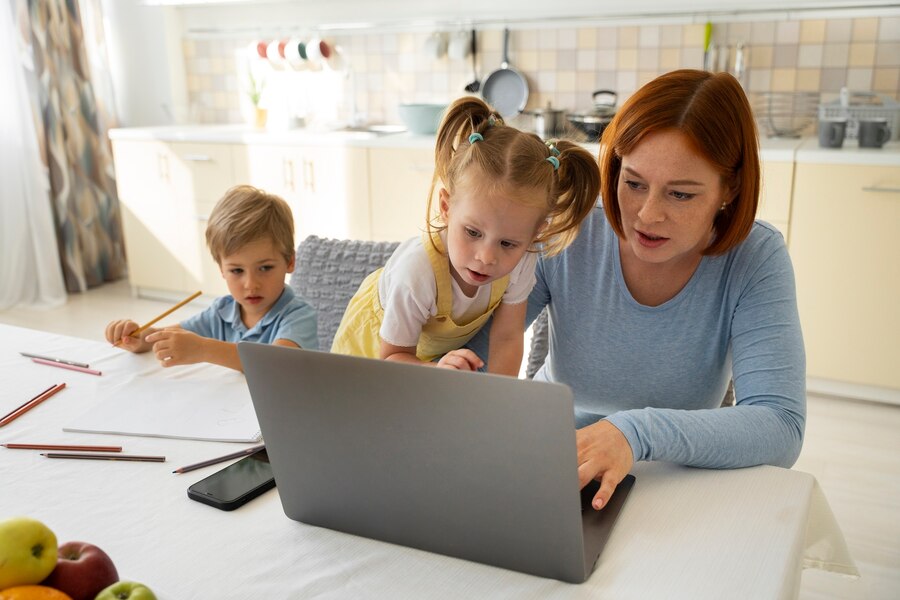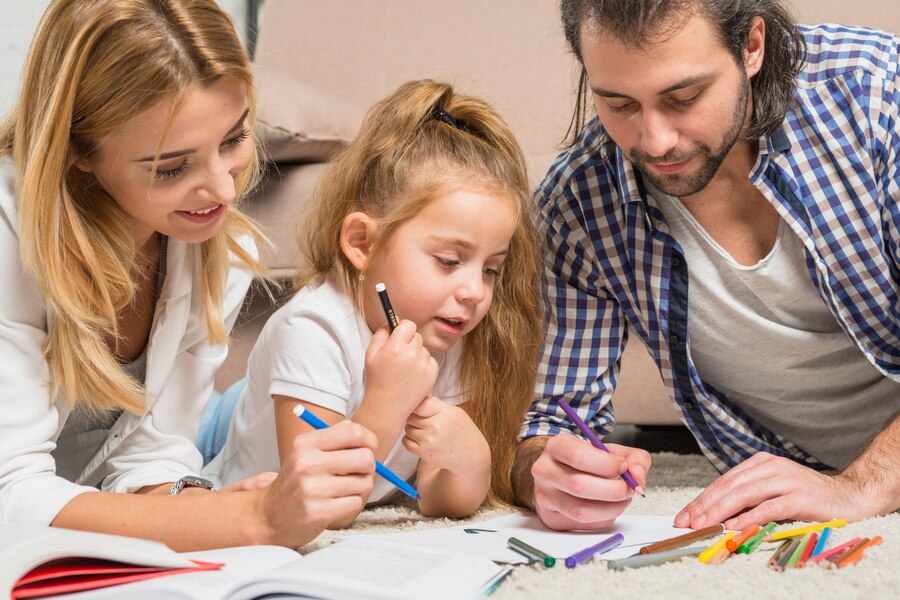
Transforming Education and Parenting: A Positive Approach for the Modern Era

In today’s fast-paced world, the dynamics of education and parenting are evolving rapidly. The integration of a positive approach in both domains is not just a trend but a necessity. This approach emphasizes creating a supportive and nurturing environment that fosters holistic development. This article delves into how a positive approach is revolutionizing education and parenting for the modern era.

The Importance of a Positive Approach
A positive approach in education and parenting is crucial for the mental, emotional, and social well-being of children. It focuses on strengths rather than weaknesses, encouraging a growth mindset that empowers children to achieve their full potential. By fostering a positive environment, both educators and parents can significantly impact a child’s development and future success.
Benefits of Positive Education
Positive education combines traditional educational practices with lessons on happiness and well-being. It aims to develop not only intellectual skills but also emotional intelligence, resilience, and a sense of purpose. The benefits of positive education are manifold:
- Improved Academic Performance: Students who feel supported and valued are more likely to excel academically.
- Enhanced Emotional Well-being: Teaching students about emotional regulation and positive thinking contributes to better mental health.
- Stronger Social Skills: Positive education promotes collaboration, empathy, and effective communication.
Key Principles of Positive Education
Implementing positive education involves adhering to several core principles:
- Focus on Strengths: Identify and nurture each student’s unique strengths.
- Growth Mindset: Encourage a belief in the ability to learn and grow through effort and perseverance.
- Emotional Literacy: Teach students to understand and manage their emotions.
- Positive Relationships: Foster strong, supportive relationships between students and teachers.
Creating a Positive Learning Environment
A positive learning environment is one where students feel safe, respected, and motivated to learn. Key elements include:
- Inclusive Practices: Ensure all students feel included and valued.
- Collaborative Learning: Promote teamwork and peer support.
- Physical Environment: Create a welcoming and stimulating classroom setup.
Role of Teachers in Positive Education
Teachers play a pivotal role in implementing positive education. They are not just instructors but also mentors who guide students in developing a positive outlook towards learning and life. Effective strategies include:
- Modeling Positive Behavior: Teachers should exemplify the behaviors and attitudes they wish to instill.
- Providing Constructive Feedback: Focus on constructive feedback that encourages improvement rather than criticism.
- Encouraging Student Autonomy: Allow students to take ownership of their learning process.

Positive Classroom Management Strategies
Effective classroom management is essential for creating a conducive learning environment. Strategies include:
- Establishing Clear Expectations: Clearly communicate rules and expectations from the outset.
- Positive Reinforcement: Use praise and rewards to reinforce desired behaviors.
- Restorative Practices: Address conflicts and issues through restorative justice techniques rather than punitive measures.
Incorporating Mindfulness in Education
Mindfulness practices can significantly enhance the educational experience. Benefits include:
- Reduced Stress: Mindfulness helps students manage stress and anxiety.
- Improved Focus: Regular mindfulness exercises can improve concentration and attention.
- Emotional Regulation: Mindfulness teaches students to be aware of and control their emotions.
Parenting with a Positive Approach
Positive parenting involves guiding children with love, empathy, and respect. This approach focuses on building strong, healthy relationships and promoting a supportive family environment.
Benefits of Positive Parenting
Positive parenting offers numerous benefits, including:
- Stronger Parent-Child Bonds: Building trust and mutual respect strengthens the relationship.
- Better Emotional Health: Children raised with positive parenting are more likely to develop good emotional regulation skills.
- Improved Behavior: Positive parenting techniques often result in better behavior and fewer disciplinary issues.
Core Principles of Positive Parenting
Adopting a positive parenting approach involves several key principles:
- Empathy and Understanding: Show empathy and understanding towards your child’s feelings and perspectives.
- Consistency: Be consistent in your approach to discipline and rewards.
- Positive Reinforcement: Use positive reinforcement to encourage good behavior.
Building Strong Parent-Child Relationships
Strong relationships are the foundation of positive parenting. Tips for building these relationships include:
- Quality Time: Spend quality time with your child, engaging in activities they enjoy.
- Open Communication: Maintain open lines of communication, allowing your child to express themselves freely.
- Support and Encouragement: Offer support and encouragement, helping your child to feel valued and understood.
Discipline with Dignity
Discipline in positive parenting is about teaching rather than punishing. Effective strategies include:
- Setting Clear Boundaries: Establish clear and consistent boundaries and rules.
- Natural Consequences: Allow children to experience the natural consequences of their actions when appropriate.
- Problem-Solving: Teach problem-solving skills to help children learn from their mistakes.
Encouraging Growth Mindset in Children
A growth mindset is the belief that abilities and intelligence can be developed through effort and perseverance. Ways to encourage this mindset include:
- Praise Effort, Not Just Results: Focus on praising the effort and strategies used rather than just the outcome.
- Encourage Challenges: Encourage children to take on challenges and view failures as learning opportunities.
- Model Growth Mindset: Demonstrate a growth mindset in your own behavior and attitudes.
Balancing Technology and Positive Parenting
In the digital age, balancing technology use with positive parenting is crucial. Strategies include:
- Setting Limits: Establish clear rules regarding screen time and technology use.
- Tech-Free Zones: Create tech-free zones or times, such as during meals or family activities.
- Active Participation: Engage with your child in their technology use, understanding what they are doing and showing interest.
Role of Communication in Positive Parenting
Effective communication is key to positive parenting. Tips for improving communication include:
- Active Listening: Listen actively to your child’s concerns and viewpoints.
- Non-Verbal Communication: Pay attention to non-verbal cues such as body language and tone of voice.
- Encouraging Expression: Encourage your child to express their feelings and thoughts openly.

Positive Reinforcement Techniques
Positive reinforcement involves encouraging desired behaviors through rewards and praise. Effective techniques include:
- Immediate Praise: Offer praise immediately following desired behaviors to reinforce them.
- Tangible Rewards: Use tangible rewards like stickers or small treats for younger children.
- Verbal Affirmation: Use verbal affirmations and encouragement to boost confidence and self-esteem.
Challenges in Adopting a Positive Approach
Adopting a positive approach in education and parenting can be challenging. Common obstacles include:
- Resistance to Change: Both educators and parents may resist changing established practices.
- Lack of Resources: Implementing positive approaches can require additional resources and training.
- Cultural Differences: Different cultural norms and values can impact the adoption of positive approaches.
Overcoming Obstacles in Positive Education
Overcoming obstacles in positive education requires commitment and strategic planning. Strategies include:
- Professional Development: Provide ongoing professional development for educators on positive education techniques.
- Collaboration: Encourage collaboration between educators, parents, and the community.
- Resource Allocation: Ensure adequate resources are allocated to support positive education initiatives.
Addressing Challenges in Positive Parenting
Challenges in positive parenting can be addressed through:
- Support Networks: Build a support network of friends, family, and parenting groups.
- Education: Educate yourself on positive parenting techniques and principles.
- Patience and Persistence: Be patient and persistent, understanding that change takes time.
Case Studies: Success Stories
Real-life success stories can provide inspiration and practical insights. For example:
- School Programs: Case studies of schools that have successfully implemented positive education programs.
- Family Successes: Stories of families who have transformed their relationships through positive parenting.
Future Trends in Education and Parenting
Future trends in education and parenting are likely to focus on further integrating positive approaches. Trends include:
- Technology Integration: Using technology to support positive education and parenting practices.
- Global Collaboration: Increased global collaboration on best practices and research in positive approaches.
- Holistic Development: Emphasis on holistic development, addressing intellectual, emotional, and social needs.
Innovations in Positive Education
Innovations in positive education include:
- Online Learning Platforms: Development of online platforms that support positive education principles.
- Interactive Tools: Use of interactive tools and games to teach positive education concepts.
- Blended Learning Models: Combining traditional classroom teaching with online resources and activities.
Technological Advancements in Parenting
Technological advancements in parenting include:
- Parenting Apps: Apps that provide tips, resources, and support for positive parenting.
- Online Communities: Online communities where parents can share experiences and advice.
- Smart Devices: Use of smart devices to monitor and support children’s development and well-being.
Global Perspectives on Positive Education and Parenting
Different countries and cultures have unique approaches to positive education and parenting. Exploring these perspectives can provide valuable insights:
- Scandinavian Models: Scandinavian countries are known for their progressive education and parenting practices.
- Eastern Philosophies: Eastern philosophies often emphasize mindfulness and holistic development.
- Western Approaches: Western approaches may focus more on individualism and personal achievement.
Role of Community and Society
Community and society play a crucial role in supporting positive education and parenting. Ways to engage the community include:
- Community Programs: Develop community programs that support positive education and parenting.
- Policy Advocacy: Advocate for policies that promote positive approaches in education and parenting.
- Partnerships: Form partnerships with local organizations and businesses to support initiatives.
Resources for Positive Education and Parenting
There are numerous resources available to support positive education and parenting, including:
- Books and Articles: A wide range of books and articles provide in-depth information and practical tips.
- Workshops and Seminars: Attend workshops and seminars to learn from experts and connect with other parents and educators.
- Online Resources: Utilize online resources, including websites, blogs, and forums, for ongoing support and information.
Expert Opinions and Advice
Experts in the fields of education and parenting offer valuable advice and insights. Key points include:
- Dr. Jane Nelsen: Emphasizes the importance of mutual respect and encouragement in parenting.
- Professor Martin Seligman: Advocates for the integration of positive psychology in education.
- Dr. Laura Markham: Highlights the role of emotional connection and positive discipline in parenting.

A positive approach to education and parenting is transforming how we nurture and educate the next generation. By focusing on strengths, fostering a growth mindset, and building strong, supportive relationships, we can create environments where children thrive. Embracing these principles in both educational settings and at home can lead to happier, healthier, and more successful children.
Read Also:
Preparing Your Child for Nursery School: A Comprehensive Parent’s Guide